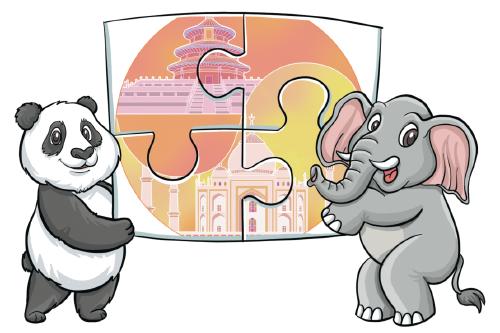Stable Sino-Japanese ties serve both sides: China Daily editorial


Shortly after Shigeru Ishiba's reelection as Japanese prime minister on Monday, he proposed a plan that the Japanese government will provide at least 10 trillion yen ($64.5 billion) of support before the 2030 fiscal year to promote the development of the country's semiconductor and artificial intelligence industries.
The move clearly indicates the Japanese leader is well aware that whether or not his government can consolidate the backbone industries of Japan to help the country address its long-term economic woes will decide his political future.
That Ishiba was reelected hours after he and his Cabinet resigned demonstrates the division in Japan's political circle as well as the fact that neither side has the confidence that it can help the world's fourth-largest economy weather through its long-term structural problems that were aggravated during the Fumio Kishida government's time in office.
In addition to 10 trillion yen to support AI and semiconductor research and development, the new economic countermeasures proposed by the Ishiba Cabinet include financial support for low-income families to help them cope with rising prices.
During Kishida's initial tenure, although his Cabinet advocated the promotion of "new capitalism" policies, promising a virtuous cycle of growth and distribution, the yen experienced historic depreciation against the dollar and the euro, which, while good for export companies, increased the price pressure at home, where people's real wage growth has actually been negative.
These economic issues are closely related to Japan's one-sided pro-United States diplomacy, which comes at a high cost to Japan's ties with its major trading partner, China. To please the US, the Japanese government is raising large amounts of debt to cover the government's fast rising expenditure on security.
The high defense spending has forced the government to resort to printing excessive amounts of banknotes that has fueled inflation, affecting ordinary people the most, which explains the low support rate for the Kishida government. Since it is difficult for the government to overhaul its foreign policy, it is almost impossible for it to make breakthroughs in addressing the country's weak economy in the near future as evidenced by the failure of the Ishiba-led ruling coalition of the Liberal Democratic Party and Komeito to win a majority in the country's legislature. The lack of confidence and consensus would pull the rug from under the Ishiba government's feet when it comes to some crucial reforms.
Japan's outbound economy, limited natural resources and aging population mean its economy relies on relations with its major trading partners, particularly China. Reducing its economic and trade cooperation with China further squeezes the policy and financial space for Japan to overcome pressures from its labor shortage and rising labor costs caused by an aging population and a declining birthrate.
What Japan lacks most for its AI and high-end chip industries is not government subsidies or stimulus packages but international cooperation, a market and manufacturing bases to industrialize and commercialize its know-how. Maintaining the stability of the industry and supply chains between Japan and China serves the interests of both sides, and is crucial if the Ishiba government is to bail out the Japanese economy and enhance people's livelihoods.
China is ready to work with Japan to further leverage their respective comparative advantages, explore more new growth poles of cooperation, and jointly safeguard the stability and smooth flow of their industry and supply chains.
Meanwhile, the upcoming APEC Economic Leaders' Meeting in Lima, capital of Peru, followed by the G20 Summit in Rio de Janeiro should provide Ishiba an opportunity to reevaluate Japan's gains and losses over the past few years and ensure Japan plays its due role as a key member of the Asia-Pacific economic community promoting free trade and economic globalization.


































